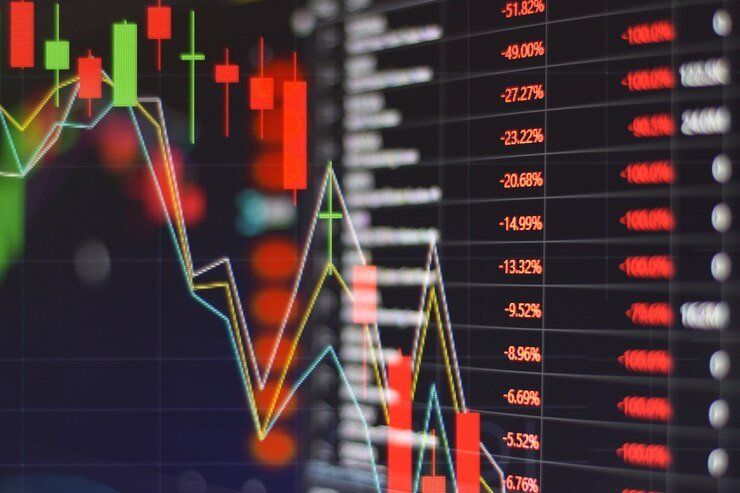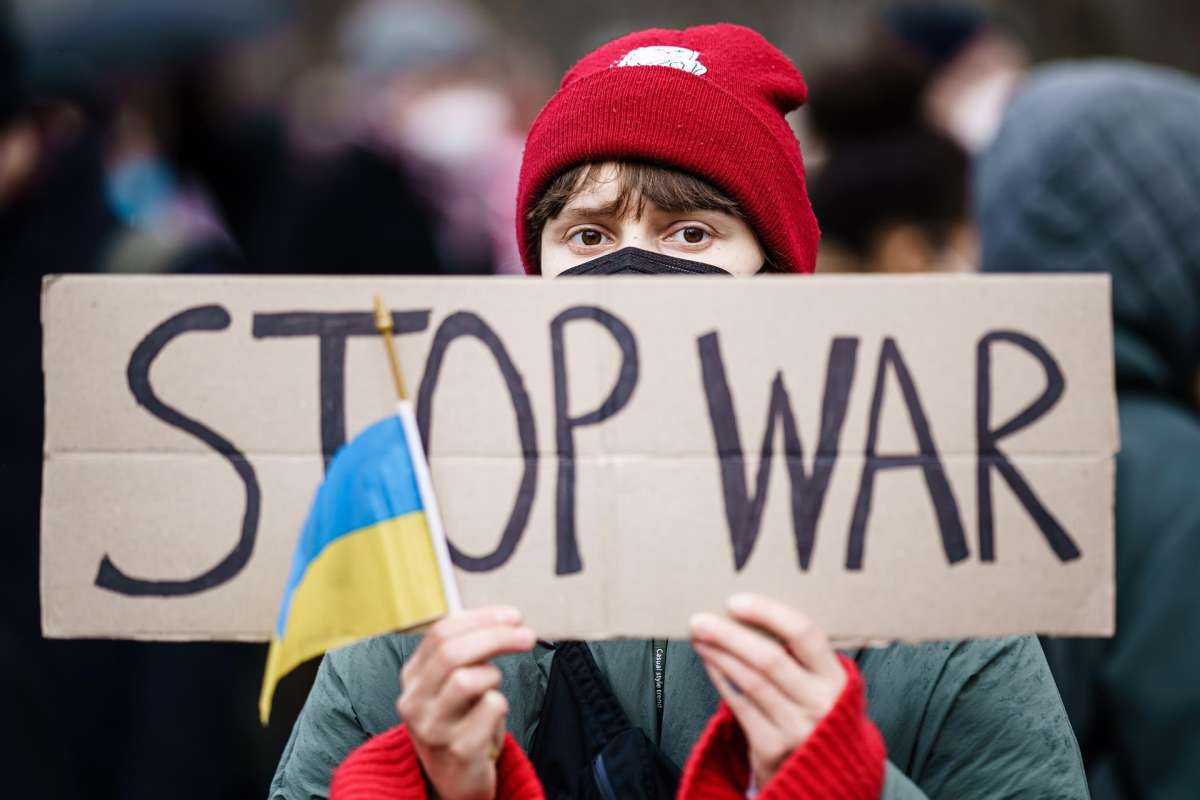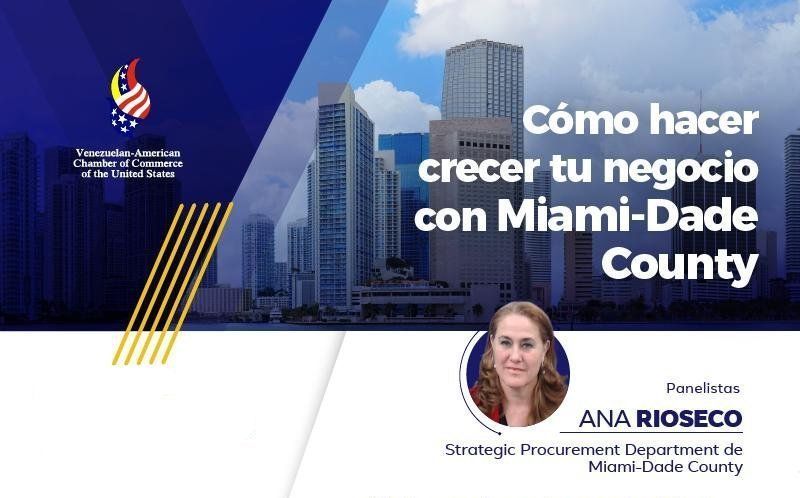¿Qué hacer con tus inversiones en tiempo de guerra?

Cuando ya pensábamos que vendrían tiempos de calma y se comenzaba a ver un escenario un poco más claro luego de la pandemia, de repente acontece la invasión de Rusia en Ucrania y por supuesto lo primero que viene a la mente de muchos inversionistas es la palabra “pánico”.
En este artículo revisaremos que ha pasado en situaciones de conflictos bélicos anteriores y cómo se ha comportado el mercado de valores.
Antes de comenzar, sería importante recordar la famosa frase de Sir. John Templeton (inversionista británico - americano), el cual dijo "Las cuatro palabras más peligrosas en el mundo de las inversiones son: Esta vez es distinto"
Muchos, tendemos a pensar que el momento que vivimos actualmente es único y que los resultados serán totalmente distintos a los que se hayan vivido en el pasado; puesto que antes no estaba Putin, no se habían creado sanciones financieras contra Rusia como se han hecho ahora y no teníamos a un país con armas nucleares tratando de adueñarse de Ucrania, generando que el valor del petróleo creciera a sus máximos históricos y con ellos el precio de la gasolina subiendo y empujando a la inflación.
Todo ello es cierto, pero particularmente los mercados de valores lo ven un poco distinto:
Primero, para los mercados no es nuevo vivir una guerra o invasión
Las evidencias históricas muestran que en la mayoría de los casos los mercados de valores se recuperan relativamente rápido de este proceso, esto no es como una pandemia donde la bolsa de valores no había vivido esa situación en los últimos 100 años y no se tenía idea de cómo iban a reaccionar, por ser algo absolutamente nuevo.
Veamos los siguientes casos con data recolectada de Investopedia y LPP Financial:
- Ataque a Pearl Harbor en el año 1941: Los mercados de valores llegaron a caer un 19,8% y se mantuvieron en negativo por unos 143 días, pero luego de 307 días ya estaban nuevamente en positivos.
- La crisis de los Misiles en Cuba del año 1962: Se puede decir que tiene ciertas similitudes, porque en ese momento también se hablaba de armas nucleares, el mercado cayó un 6,6% en 18 días el mercado ya se había recuperado.
- La invasión de Iraq a Kuwait del año 1990: Se asemeja por ser una invasión y la bolsa de valores cayó un 16,9% pero se sobrepuso luego de 189 días.
- La crisis de los misiles de Corea del Norte del 2017: El mercado de valores cayó un 1,5% y en 36 días ya se había recuperado.
Como vemos todos estos hechos históricos tienen un mismo patrón en común, los mercados de valores han mostrado una tendencia continua a recuperarse y dejar estos conflictos atrás.
Segundo, las bolsas de valores siempre tratan de predecir lo que va a pasar no lo que ya pasó:
En el mundo de las inversiones, los inversionistas están continuamente tratando de predecir lo que va a pasar y no lo que ya pasó. Funcionan como esos instrumentos que tratan de predecir la llegada de un huracán o una tormenta antes que esta llegue, lo cual puede ser que termine ocurriendo o que la tormenta no llegue.
En lo particular, esta invasión de Rusia a Ucrania ocurrió de esta forma, mientras Putin le decía al mundo que no tenía intenciones de invadir y todas las noticias nos mostraban que cada día iba acumulando más y más tropas en la frontera con Ucrania, la bolsa de valores por su lado venía cayendo fuertemente diciendo no le creo a Putin y eso empezó a afectar los precios de las acciones, a pesar de que no había pasado nada todavía.
De igual forma ha ocurrido en la historia, que nos muestra que, en los periodos de mayor conflictividad o presión, de repente las acciones comienzan a subir debido a que el mercado empieza a sentir que eventualmente puede venir una solución y buscan entonces comprar acciones a precios bajos para esperar la subida.
Por lo que muchas veces usted se levanta y ve el noticiero a primera hora de la mañana y quizás se estresa pensando que debe hacer algo antes que estas noticias afecten sus inversiones y la realidad es que ya las acciones han reflejado su precio en el mercado esta información y es más bien tarde, pero su cerebro financiero le va a jugar una mala pasada haciéndole creer que todavía tiene tiempo para hacer algo.
Entonces, como vemos, el verdadero reto en estos momentos es lograr controlar la guerra de estrés que existe en su cerebro financiero, para lo cual le vamos a ayudar a identificar aquellos puntos donde usted sí debe hacer algo, mejorando así su comportamiento como inversionista:
1) Pensar que lo ocurre en el corto plazo ocurrirá por siempre
Este uno de los errores más comunes que comenten lo inversionistas, dicen hay una guerra esto va para peor, las cosas no van a mejorar y dejan que la visión de corto plazo gobierne sobre su dinero cuando todos sabemos que en el mercado de valores no debes invertir aquel dinero que necesitas para el corto plazo, y si no lo necesitas para hoy qué importa si el saldo de tu portafolio va para abajo si históricamente las inversiones salen victoriosas de las guerras.
2) No tener un portafolio diversificado
La gran realidad es que en toda guerra o invasión siempre existirán pérdidas en el camino, y como hemos visto es prácticamente imposible determinar o predecir cuáles serán los sectores, empresas o acciones que verdaderamente se verán favorecidas puesto que dependen de muchos factores. Algunos dirían que en un conflicto bélico las empresas armamentistas se ven favorecidas, pero lo que no sabes es qué pasa si del día mañana algo cambia y la invasión cesa bruscamente.
Por lo que la sugerencia en momentos de alta incertidumbre es justamente tener un poco de todo, de esa forma diversificar y no estar tratando de pegar el caballo ganador o en este caso la acción ganadora.
3) Recuerde que es para el largo plazo
Usted debe tener siempre un dinero que no invierta en el mercado de valores, el cual podemos llamar fondo de emergencias y justamente es el que le va a ayudar para cuando ocurran situaciones como estas y no tenga que usar el dinero que tiene invertido en momentos de baja.
Entonces recuerda que el dinero que inviertas en el mercado de valores debe permanecer allí por lo menos unos 3 años.
4) La fórmula mágica el rebalanceo
Una de las funciones por las cuales los inversionistas contratan a un asesor de inversiones para que administren su portafolio por ellos, es que hay dos factores que son sumamente complejos:
- Saber cuándo comprar y más difícil aún saber cuándo vender.
- Ni el mejor cirujano debe operarse a sí mismo, porque es muy difícil comportarse como una máquina y no dejar que tus decisiones de inversión estén influidas por el bombardeo continuo de los noticieros, amigos y familiares.
Para ello los asesores de inversión, establecemos una receta para los portafolios la cual va a representar la ruta que seguiremos como si fuera una receta de repostería donde digamos tu portafolio debe tener, por ejemplo, una tasa de acciones y una cucharadita de bonos de mercados emergentes, y cuando los precios de los activos vayan cambiando en el tiempo, el asesor debe hacer que regresen sus valores iniciales, comprando el que bajó y vendiendo el que subió.
5) La más importante debes cuidarte de ti mismo
Sabemos que los noticieros del mundo no generan sus audiencias por poner informaciones bonitas o de personas que vienen logrando sus metas, sino que principalmente viven de aquellas noticias horribles que a todos nos gusta escuchar y son las que se viralizan.
Pues de igual forma ocurre con tus inversiones, normalmente los asesores en estos momentos decimos en esta oportunidad no es bueno estar consultando continuamente el saldo de tu portafolio, y ¿Qué es lo primero que hacen los clientes? salen corriendo a ver su saldo.
Pero no se dan cuenta que con ello lo que hacen es estresarse y cuando las personas están en estado de miedo no toman las mejores decisiones financieras. Por lo que le volvemos a decir no consultes el saldo en este momento y deja que pase la tormenta.
En conclusión, podemos señalar que la frase de Sir. John Templeton sigue teniendo más vigencia que nunca, no pienses que este momento es distinto, sigue estas recomendaciones y sugerimos siempre apoyarte con un Planificador Financiero Certificado (CERTIFIED FINANCIAL PLANNER™) que te ayude a crear un plan de largo plazo para tus metas financieras, recordando que en el camino habrá turbulencias, pero también sale el sol nuevamente.
Nota: Rendimientos históricos no son garantía de resultados futuros. Información únicamente para fines educativos no representando una asesoría financiera o promoción alguna de un producto financiero. Siempre consulte su caso particular con su asesor o planificador financiero.
Breve Biografía del Autor:
Alonso Rodríguez Segarra CFP ®, Fundador & CEO Advise Financial
Alonso, reconocido como el primer venezolano en obtener la prestigiosa certificación de "CERTIFIED FINANCIAL PLANNER™" en USA. Comprometido como asesor financiero para latinos, con más de 20 años de experiencia en el mundo de las finanzas, siempre trabajando bajo el criterio fiduciario.
What to do with your investments in wartime?
By Alonso Rodríguez Segarra

When we already thought that calm times would come and a slightly clearer scenario was beginning to be seen after the pandemic, suddenly the invasion of Russia in Ukraine occurs and of course the first thing that comes to mind for many investors is the word “panic".
In this article we will review what has happened in situations of previous armed conflicts and how the stock market has behaved.
Before starting, it would be important to remember the famous phrase of Sir. John Templeton (British-American investor), who said "The four most dangerous words in the investment world are: This time it's different"
Many of us tend to think that the moment we are currently living is unique and that the results will be totally different from those that have been experienced in the past; Since Putin was not there before, financial sanctions against Russia had not been created as they have been done now, and we did not have a country with nuclear weapons trying to take over Ukraine, causing the value of oil to grow to all-time highs and with them the price of gasoline rising and pushing inflation.
All this is true, but particularly the stock markets see it a little differently:
First, it is not new for the markets to experience a war or invasion
Historical evidence shows that in most cases the stock markets recover relatively quickly from this process, this is not like a pandemic where the stock market had not experienced that situation in the last 100 years and there was no idea of how they would react, because it was something new.
Let's look at the following cases with data collected from Investopedia and LPP Financial:
- Attack on Pearl Harbor in 1941: Stock markets fell by 19.8% and remained negative for about 143 days, but after 307 days they were positive again.
- The Missile Crisis in Cuba in 1962: It can be said that it has certain similarities, because at that time there was also talk of nuclear weapons, the market fell 6.6% in 18 days, the market had already recovered.
- Iraq's invasion of Kuwait in 1990: It resembles an invasion and the stock market fell 16.9% but recovered after 189 days.
- The North Korean missile crisis of 2017: The stock market fell by 1.5% and in 36 days it had already recovered.
As we see all these historical events have the same pattern in common, the stock markets have shown a continuous tendency to recover and leave these conflicts behind.
Second, stock markets always try to predict what is going to happen, not what has already happened:
In the investment world, investors are constantly trying to predict what is going to happen and not what has already happened. They work like those instruments that try to predict the arrival of a hurricane or a storm before it arrives, which may end up happening or the storm may not arrive.
In particular, this invasion of Russia with Ukraine happened in this way, while Putin told the world that he had no intention of invading and all the news showed us that every day he was accumulating more and more troops on the border with Ukraine, the bag stocks, on the other hand, had been falling sharply saying I don't believe Putin and that began to affect share prices, despite the fact that nothing had happened yet.
In the same way, it has happened in history, which shows us that, in periods of greatest conflict or pressure, suddenly the shares begin to rise because the market begins to feel that a solution may eventually come, and they then seek to buy shares at Low prices to wait for the rise.
So many times you get up and watch the news first thing in the morning and perhaps you get stressed thinking that you must do something before this news affects your investments and the reality is that the stocks have already reflected their price in the market this information and it's rather late, but your financial brain is going to play tricks on you by making you believe that you still have time to do something.
So, as we can see, the real challenge right now is to control the stress war that exists in your financial brain, for which we are going to help you identify those points where you should do something, thus improving your behavior as an investor:
1) Thinking that what happens in the short term will happen forever
This is one of the most common mistakes that investors make, they say there is a war, this is going to get worse, things are not going to get better and they let the short-term vision rule over their money when we all know that in the stock market you should not invest the money you need for the short term, and if you don't need it for today, what does it matter if the balance of your portfolio goes down if, historically, investments come out victorious in wars?
2) Not having a diversified portfolio
The great reality is that in any war or invasion there will always be losses along the way, and as we have seen, it is practically impossible to determine or predict which sectors, companies or actions will truly be favored since they depend on many factors. Some would say that in a war conflict, arms companies are favored, but what you don't know is what happens if something changes tomorrow, and the invasion abruptly stops.
So, the suggestion in moments of high uncertainty is precisely to have a little of everything, to diversify and not be trying to hit the winning horse or in this case the winning action.
3) Remember that it is for the long term
You should always have money that you do not invest in the stock market, which we can call an emergency fund and it is precisely the one that will help you when situations like these occur and you do not have to use the money that you have invested in times of crisis. short.
So remember that the money you invest in the stock market must stay there for at least 3 years.
4) The magic formula rebalancing
One of the functions for which investors hire an investment advisor to manage their portfolio for them is that there are two factors that are extremely complex:
- Know when to buy and even more difficult to know when to sell.
- Not even the best surgeon should operate on himself, because it is very difficult to behave like a machine and not let your investment decisions be influenced by the continuous bombardment of the news, friends, and family.
To do this, investment advisors establish a recipe for the portfolios which will represent the path that we will follow as if it were a pastry recipe where we say your portfolio must have, for example, a stock rate and a teaspoon of market bonds emerging, and when asset prices change over time, the advisor must return their initial values, buying the one that fell and selling the one that rose.
5) The most important thing is to take care of yourself
We know that the world's newscasts do not generate their audiences by posting beautiful information or of people who have been achieving their goals, but rather they mainly live on that horrible news that we all like to hear and are the ones that go viral.
Well, in the same way it happens with your investments, normally the advisors currently say in this opportunity it is not good to be continually consulting the balance of your portfolio, and what is the first thing that clients do? They run out to check their balance.
But they do not realize that what they do is stress themselves and when people are in a state of fear, they do not make the best financial decisions. So, we tell you again, do not check the balance at this time and let the storm pass.
But they do not realize that what they do is stress themselves and when people are in a state of fear, they do not make the best financial decisions. So, we tell you again, do not check the balance at this time and let the storm pass.
In conclusion, we can point out that the sentence of Sir. John Templeton is still more relevant than ever, do not think that this moment is different, follow these recommendations and we always suggest supporting you with a Certified Financial Planner (CERTIFIED FINANCIAL PLANNER™) that will help you create a long-term plan for your financial goals, remembering that on the way there will be turbulence, but also the sun rises again.
Note: Historical returns are not a guarantee of future results. Information for educational purposes only, not representing financial advice or any promotion of a financial product. Always consult your case with your advisor or financial planner.
Brief Biography of the Author:
Alonso Rodríguez Segarra
CFP ®, Founder & CEO Advise Financial
Alonso, recognized as the first Venezuelan to obtain the prestigious certification of "CERTIFIED FINANCIAL PLANNER ™" in the USA. Committed as a financial advisor for Latinos, with more than 20 years of experience in the world of finance, always working under fiduciary criteria.











